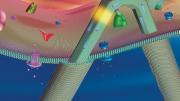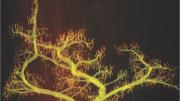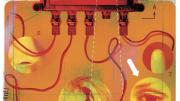Right Now
Calestous Juma promotes African agriculture
Calestous Juma sees agricultural innovation as a catalyst to promote development.
Robert Eccles on the benefits of integrated reporting
Integrated reporting gives stakeholders information about the sustainability of a corporation’s business.
A video game for anger management and emotional control
At Children's Hospital Boston, a video game offers emotionally explosive youths methods of self-control.
Charles Lieber's nanoscale transistors can enter cells without harming them
Chemist Charles Lieber and his colleagues have developed a nanoscale transistor so small it can enter, probe, and communicate with cells without harming them.
Amartya Sen proposes a measure of poverty that looks beyond income
A multidimensional poverty index, based on the ideas of Amartya Sen, reveals a different map of the world's poor.
Warren Brown: Stars escaping the Milky Way help map matter in our galaxy
Stars escaping the Milky Way help Warren Brown and other astronomers map the distribution of matter in our galaxy.
Our sense of touch influences our actions
Tactile sensations change perceptions, says psychologist Christopher Nocera.
Raj Chetty: Good kindergarten teachers boost pupils' lifetime earnings
An economist finds that good kindergarten teachers boost pupils' earnings later in life.
Exercise and caloric restriction counter aging in neural synapses
Caloric restriction and exercise boost mental acuity and motor ability by rejuvenating synapses.
Michael Greenberg studies molecular-level memory formation and eRNA
Neurobiologist Michael Greenberg investigates how memories form at a molecular level, and discovers a new class of RNA.








